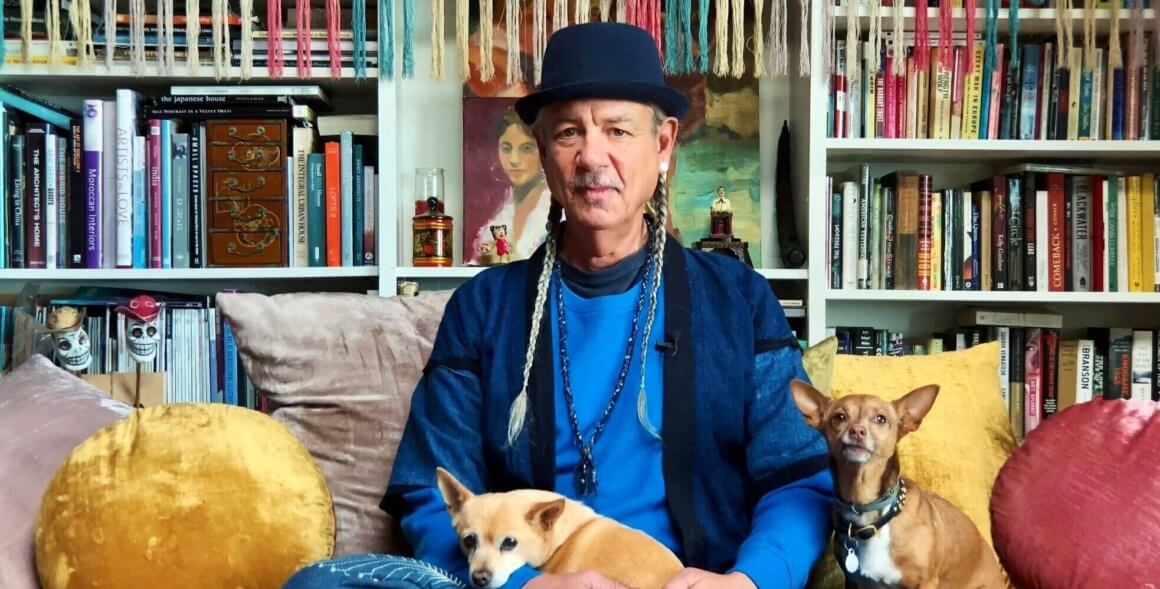Cannabis industry regulation should include reparation for people arrested for non-violent crimes, says Steve DeAngelo
The Humanitas360 Institute joined a meeting hosted by The Green Hub with the so-called “father of the legal cannabis industry”, Steve DeAngelo. He is the founder of Harborside Health, one of the first cannabis dispensaries in the United States and part of the Arc View Group, a company that invests in other newly born businesses related to the plant. He also authored manifestos and conceived The Last Prisoner, a social project that aims to release all about 40,000 people arrested in the United States for non-violent cannabis-related crimes.
DeAngelo gave a lecture on the cannabis industry, its connection with technology, medicine, pharmacy and, of course, racism and police repression related to the so-called “war on drugs”, that falls especially on the black population. “Many people are shocked when I tell stories like that of Michael Thompson, 69 years of age, who is in prison in Michigan serving a 60-year sentence for selling 1.5 kg of marijuana to an undercover detective in the 1990s. Just to give a parameter, the officers responsible for the death of George Floyd are at risk of getting a maximum sentence of 40 years,” recalled DeAngelo.
The talk was joined by two founders of The Green Hub, a cannabis-related business accelerator in Brazil — Alex Lucena and Marcelo Grecco –, Daniel Jordão, founder of the SeChat portal, and Paula Carvalho, communication manager of the Humanitas360 Institute.
Recalling the strong connection between the H360’s work and DeAngelo’s projects, Paula asked the specialist how we can work to generate more data on cannabis-related crimes in Brazil. “In the period of the so-called ‘war on drugs’ in the United States [1990s], 80% of the arrests were made for non-violent cannabis-related crimes. And they do not want to publicize this, because it is absurd. But the families of these people know who they are and why they are in prison. So I suggest that you seek out these people in Brazil and tell these stories,” stressed DeAngelo.
He also recalled that not simply because the United States has promoted changes in cannabis law that people arrested for these crimes have been released. “If you don’t bother writing this into the law, it just won’t happen.”
Cannabis situation in Brazil
In Brazil, we have been moving slowly towards a more open law for medicinal use of cannabis. In March, a new legislation from the National Sanitary Surveillance Agency (Anvisa) came into effect, allowing the sale of products derived from cannabis in pharmacies. The price of the first of these drugs, however, is exorbitant: it costs up to 2.3 thousand reais (437.90 dollars).
In June, a project by Rio de Janeiro state deputy Carlos Minc (Brazilian Socialist Party) was approved by the Legislative Assembly of Rio de Janeiro: after overturning a veto by Governor Wilson Witzel (Social Christian Party), the cultivation of cannabis for research purposes was approved in the state. The project is historic: with this approval, more scientific work can be done, and with better quality.
Since 2014, Patrícia Villela Marino, president of the Humanitas360 Institute, has been working on the theme of drug policy — she led the creation of the Latin American Drug Policy Platform (PLPD) and also executive produced the film “Illegal”, directed by Tarso Araujo and Raphael Erichsen, which helped change the way Brazilian society thought about cannabis-derived drugs. By showing that children who suffered from rare types of epilepsy reduced the hundreds of seizures they had each day, the film brought a lot of people to a qualified debate. From then on, several of these parents went to Brasilia to ask the National Congress for legislators to allow them to legally import these drugs. But that is not enough, as the president of H360 and lawyer Emílio Figueiredo defend in this article, also published this June.
In the discussion with DeAngelo, the Green Hub founders recalled that without Brazilian legislation allowing the planting of cannabis, the market will remain of very restricted access. And as an agro-industrial powerhouse, Brazil could still benefit a lot from this market.
DeAngelo also recalled that in places where cannabis was legalized in the United States, studies show a drop in consumption of pharmaceuticals, alcohol, as well as a drop in the rate of violent crime, domestic violence and an increase in the number of jobs and tax collection. Products derived from hemp may replace materials such as plastic and cotton in the manufacture of clothing. The cannabinoid industry, in its most diverse branches, is also less polluting. One of the keys to the future, says Steve DeAngelo, will inevitably be cannabis.
Watch the full version bellow:

